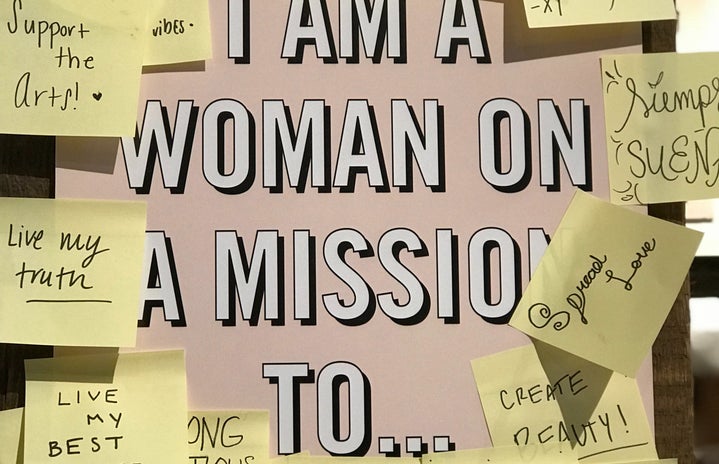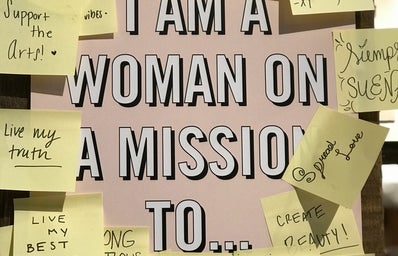Considering our daily lives, it is insane how many decisions we have to make. Whether it is what to make for breakfast or what podcast to listen to on our walk, every day we choose between a series of options in order to smoothly proceed with our routines. Some decisions, however, are a bit heavier in nature, especially ones related to our academic and career paths. After we have chosen an opportunity, be it taking a second part-time job, switching our majors or moving to a new city, it is easy to ruminate on our decision believing that the other way was the”right” one, consequently inflicting a period of regret and self-doubt. While reflecting on our actions is often a positive sign that we are introspective and careful individuals, spending an excessive amount of time dwelling on our past decisions can cause unnecessary stress and anxiety. So, how do you prevent yourself from becoming overwhelmed with all the potential “what-if” scenarios of a choice, and how can you calm yourself down from the burden of endless second-guessing?
- Make a pros-and-cons list:
Whip out a pen and paper and jot down what the best outcomes of your decision may be, and what would be the worst. Chances are that what you would write as the “worst” is either a) improbable or b) not entirely awful. For example, you might drop a class in order to have a lighter schedule. This decision might ignite an episode of second-guessing that inclines you to believe that taking one less credit will put you far behind your peers, and jeopardize your academic career. Of course, this is far from reality: thus, writing out that con and visualizing the worst-case scenario situation will actually demonstrate to you that your choice will not have dramatic implications on your life. In turn, you may actually come to realize that your decision to drop the class is for the better in that you will receive more time to focus on your mental health and potential part-time jobs.
- Consult with friends and family
In times of distress, our loved ones are often beacons of hope and comfort. If you worry that you have jeopardized an aspect of your life with a certain decision, conversing with those that you trust can provide you with alternative insight and guidance that you may not have recognized beforehand. They may also have a similar experience to you, whether it be with your specific decision or with second-guessing in general, and their solace may offer you newfound solace and clarity.
- Use external resources:
While significant others can be helpful, it is sometimes worth gaining a perspective that we don’t believe is subjective to our lives. If we feel as if we have wholeheartedly messed up, it is natural to then feel that our friends and family telling us not to worry are only doing so for our own protection and self-esteem. This is when advisors and counsellors may come in handy: your school and/or workplace most likely has plenty of individuals you can speak to who can guide you during this time.
- Trust yourself:
This may be the most difficult task but is arguably the most critical. Despite it being easy to fall into a habit of self-doubt and sabotage when feeling as if we made the wrong decision, taking the stance that we, instead, intuitively did what was best may be the confidence and worthiness that we require to battle through our feelings of regret. Remember that you were the one to make that decision in the first place, and while it might seem like a mistake, it may reveal to you lessons and values that you would have not been able to gain in other circumstances.
- Forgive yourself:
Let’s say, for the sake of this exercise, the worst possible case scenario occurs: you do end up graduating a year behind your friends for dropping out of one class (extremely unlikely, of course, but hear me out), and the greatest “con” of your choice comes into fruition. You have two options: spend an immense amount of time dwelling and beating yourself up, or radically accepting and forgiving yourself for going with what you thought would be the best. In my opinion, the latter path seems like the more healthy and enjoyable way of going about it. Thus, in order to end the second-guessing cycle, come to peace with who you are and decide to forgive yourself when the inclination to destruct settles in.
- Reframe your thinking altogether:
Much of the tiring and gruelling process of second-guessing stems from the belief that in life, there are wrong and right decisions. This is rather a binary way of conceiving the complicated and winding paths that our options set us on, and does not do the complexity of life any justice. So, for example, if you are beginning to regret moving to a new province, try to avoid perceiving the shift in location as being the “wrong” decision and staying in the same place as the right one. Instead, remove both options as having any concrete morals or attributes, and begin to imagine the opportunities that can emerge in the choice that you embarked on. While you cannot reverse your life, you are able to rejuvenate your perspective to cause less stress.


